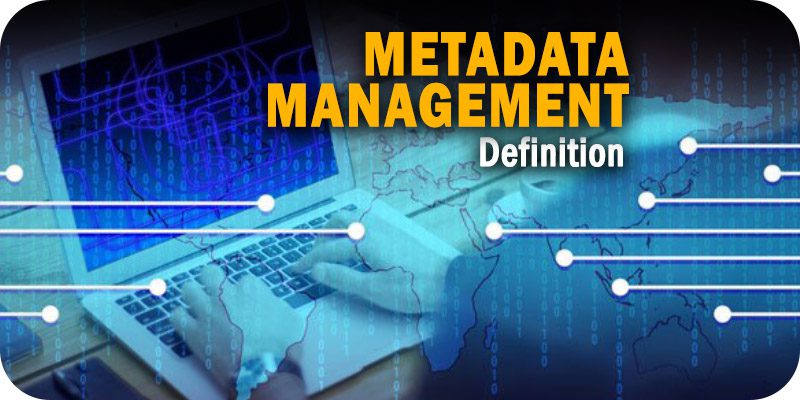A Metadata Management Definition by Solutions Review Editors


Solutions Review editors created this resource which provides a basic metadata management definition for beginners.
Metadata is data that provides information about other data. Metadata management refers to the process of managing metadata within an organization. Metadata management is critical for organizations that have large amounts of data, as it helps ensure that data is accurate, consistent, and accessible. In this article, we will explore the definition of metadata management and its importance for organizations.
Metadata can include information about the structure, content, and context of data. For example, metadata for a document might include the author, title, and date of creation. Metadata for a database might include the field names, data types, and relationships between tables. Metadata can also include information about data quality, data lineage, and data ownership.
Metadata management involves the processes, tools, and technologies that are used to manage metadata within an organization. Metadata management includes activities such as metadata capture, metadata storage, metadata maintenance, and metadata dissemination. Metadata management is critical for organizations that have large amounts of data, as it helps ensure that data is managed effectively and that data-driven decisions are based on accurate and reliable data.
Metadata Management Definition
Metadata management is important for several reasons. First, metadata management helps ensure that data is accurate and consistent. By providing information about the structure, content, and context of data, metadata can help ensure that data is interpreted correctly and used appropriately. Metadata management can also help ensure that data is accessible, as metadata can provide information about data location, format, and ownership.
Second, metadata management can help improve data quality. Metadata can provide information about data lineage, data ownership, and data quality, which can help organizations identify and resolve data quality issues. Metadata management can also help ensure that data is compliant with regulatory requirements, such as data privacy regulations.
Third, metadata management can help support data integration and data sharing. By providing a standardized way to describe data, metadata can help organizations integrate data from different sources and share data with other organizations. Metadata management can also help ensure that data is consistent and accurate across different systems and applications.
Finally, metadata management can help support data governance. Data governance involves establishing policies, processes, and guidelines for data management. Metadata management can help support data governance by providing a comprehensive view of data within an organization and ensuring that data is managed in compliance with organizational policies and regulatory requirements.
In conclusion, metadata management is critical for organizations that have large amounts of data. Metadata management involves the processes, tools, and technologies that are used to manage metadata within an organization. Metadata management is important for ensuring that data is accurate, consistent, and accessible. Metadata management can also help improve data quality, support data integration and data sharing, and support data governance. By effectively managing metadata, organizations can ensure that data-driven decisions are based on accurate and reliable data, which can lead to improved business operations and decision-making.




















